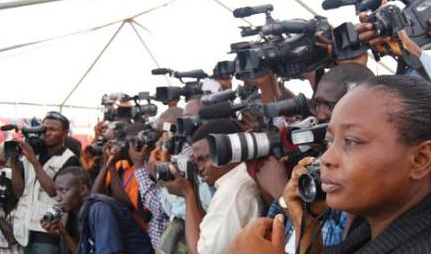
What next after 70, GJA?
The Ghana Journalists Association (GJA) is 70 years. Seventy years in the life of a person or an institution is no mean achievement as the period is characterised by many trials and tribulations, failures and of course successes.
It is a matter of course that the Daily Graphic, as a major stakeholder in media affairs in the country, will like to congratulate members of the GJA on chalking up such a milestone.
The GJA in our estimation has played a yoeman’s role in media development in the country and as the mouthpiece of journalists in the country stands in a good stead to lead the frontiers of good journalistic practices and continue to be the mouthpiece of journalists in the country.
It is no mean achievement to stay alive and relevant as the premier organisation of journalists in Ghana in spite of the ups and downs, the changing landscape of the media and the changes in government during its seven decades of championing the rights of journalists.
Indeed, it is the leadership of the GJA that championed the repeal of the Criminal Libel Law and the adoption of the Right to Information Law among other feats.
The Daily Graphic which has most of its journalists belonging to the GJA, however, believes that the association’s 70th anniversary calls for an introspection. If the GJA were a human being, 70 years would have been seen as a very ripe stage, which would either be assessed through the lenses of accomplishment and fulfilment or of failure.
Definitely, the leaders of the association over the years – the Edwin Tengeys, Edward Ameyibors, Kabral Blay-Amiheres, Gifty Affenyi-Dadzies, Ajoa Yeboah-Afaris, Ransford Tettehs and the Affail Monneys have all contributed their quota to make the GJA what it is today.
Nonetheless, no one can dispute the fact that the GJA has not been able to rope in everyone who calls him or herself a journalist in this country.
Although joining the association is voluntary, it is our candid view that more needs to be done to get a buy-in from everyone who is practising the noble journalism profession in Ghana, because that is the only way journalists can have a united and very strong front to push the media’s agenda of making the country a better place to live in.
While we agree that the leadership cannot please everyone, it at the same time behoves the leaders to have a listening ear and be innovative in their modification of the processes that members and non-members alike have qualms with in order to fully and truly represent all journalists.
The arguments have been that the GJA leadership has only been interested in issuing statements to condemn attacks on journalists, sometimes without properly investigating the incidents, and also in organising annual awards which has over the time become the flagship of the association.
While the aforementioned are all important, the Daily Graphic is of the view that the GJA can do more for its membership and for journalism in the country. The welfare of members must not only be evoked when there are physical attacks.
What of more training opportunities in well-established journalism institutions through transparent and fair selection? How about exercising great influence in the training of journalists locally – the Ghana Institute of Journalism (GIJ) is not the only journalism institution in the country.
The GJA should also liaise with well-known global brands to get quality work tools for media houses and journalists at competitive prices. We urge the association to ride on the goodwill it enjoys from corporate Ghana to complete its long overdue national headquarters project and be more proactive than it has been over the years.
We must make membership of the GJA very prestigious and rewarding! Nevertheless, the Daily Graphic can only say kudos to the GJA at 70.
